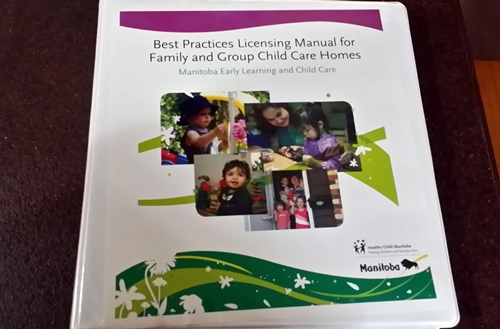'Un' is a prefix meaning “not,” freely used as an English formative,
giving negative or opposite force in adjectives and their derivative
adverbs and nouns. In the field of family childcare we often use the
words 'unlicensed', 'unregulated', 'untrained' yet for many government
officials and people outside the field of childcare those 'un' words are
not viewed as negative - simply a choice that parents should be allowed
to make regarding the care of their children.
There are
regulations governing the manufacturing of items like cribs, strollers,
carseats, and toys etc so parents know they are safe. There are
regulations regarding the production, packaging, and labeling of food
products to ensure they meet predetermined standards so people know what
they are buying. Why do government officials and the general public
think that parents should be able to choose unlicensed, untrained
childcare but need regulations to assist them to safely feed, house, and
transport their own children?
What other career field allows some
businesses to operate unlicensed and/or untrained when others providing
the same service are licensed? What is the incentive for any business
to be licensed if they can legally operate without any oversight?
Without any licensing/training requirements? What if, like in
childcare, they could actually make more money if they were not
licensed/trained than if they were licensed/trained?
Let's use
truck drivers as an example. The majority of adults have a class 5
driver's license and have experience driving their own or a friend's
vehicle. What if there were no restrictions on what size of vehicle you
could drive and anyone could just decide "Hey, I'm going to buy a big
truck and start a business delivering things for other people."
Why,
is an experienced driver with their own vehicle not allowed to start up
a trucking business without additional training or license? Why don't
people argue "It's his truck, he can do what he wants with it. If other
people are OK with letting him transport their stuff why not let
him/them. He's never had an accident and doesn't need a little piece of
paper to prove he's a good driver."
What if that same driver or
another class 5 driver then decided "A bus isn't much different than a
big truck. If I had a bus I could earn money driving people around."
What if you'd seen that driver on the street with his bus full of happy
passengers and decided to take a ride on his bus. Then imagine that one
day there was an issue - something was wrong with the bus or the
driver. What if it is too late to get off the bus before the accident
happened?
Some argue that licensing all childcare facilities and
requiring training for all childcare workers doesn't ensure quality -
but it helps. Just like trained bus/truck drivers in licensed companies
will still have accidents there are standards and checks in place to
limit them. Why don't we hear arguments that training/licensing truck
drivers doesn't prevent accidents so let's save some money and not
bother requiring them to be licensed?
Do we need more incentives
for family childcare providers to become licensed or do we need to
eliminated the option for them to operate unlicensed childcare homes?
Currently only licensed providers can accept government subsidized
families but private paying families usually pay higher rates than the
maximum subsidized rate so that isn't an incentive to be licensed.
What
about training? Currently family childcare providers with Early
Childhood Educator II/III training can receive slightly higher
subsidized rates than untrained providers but those rates are still
lower than the private rates most unlicensed/untrained providers charge
so why bother? Just think of all the tax dollars we could save if we
had trained and untrained police officers - both had the same duties
but the city could pay the untrained ones less - but either trained or
untrained officers could go work privately for more money without a gun
permit or any other type of license.
In an effort to increase the
number of licensed childcare spaces, the provincial government is
considering lessening the requirements and 'red tape' needed to open
licensed childcare homes. Why, when there was a shortage of family
doctors was it never suggested that we lower the requirements to become a
doctor? I don't think lowering FCC licensing requirements will
increase the number of licensed childcare spaces and I'm absolutely
positive it won't improve quality.
What part of licensing do they
think is unnecessary? Criminal record/child abuse registry checks?
First aid training or a 40 hour course? Behaviour management, nutrition,
safety and supervision policies? Adequate equipment? Developmentally
appropriate activities? Documentation and record keeping?
I don't think any part of the licensing process is difficult or unnecessary. If fact, I'd like to see more. I'd like to see
MANDATORY licensing for
ALL childcare homes. Greater incentives for trained providers (possibly higher ratios).
MANDATORY
annual professional development and more. I'm thinking about the best
interests of the children, not just convenience and the cost for quality
and safety.












